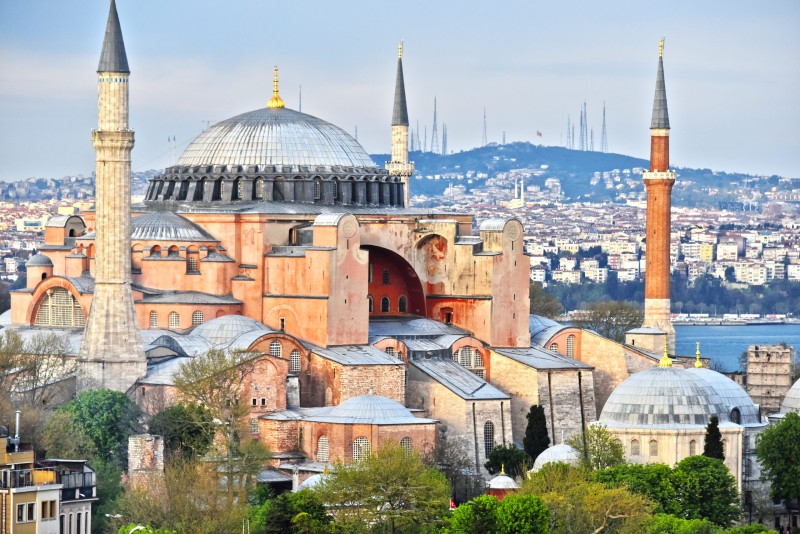Press Release No: 20/14
15 July 2020
Brussels
The Conference of European Churches (CEC) has witnessed the recent decision of Hagia Sophia’s conversion into a mosque with deep regret. The regional ecumenical organisation, representing 114 Member Churches across Europe, many of them Orthodox churches, raised its concern last week with the European Institutions and UNESCO, following a hearing by the Turkish Council of State.
Hagia Sophia is a UNESCO world heritage site in Istanbul and a museum since 1934. In Friday’s decision, the Turkish government annulled its museum status. Built 1500 years ago as an Orthodox Christian cathedral, Hagia Sophia was converted into a mosque after the Ottoman conquest in 1453 and later turned into a museum by Mustafa Kemal Ataturk.
CEC’s letter to European Commission and UNESCO
In a letter to Josep Borrell Fontelles, High Representative of the European Commission, CEC expressed deep concern over the outcome of the decision on the status of Hagia Sophia.
“The procedure, motivated by a petition delivered to the Turkish Court with the official support of the Turkish president’s office, opens the way for the conversion of Hagia Sophia into a mosque, questioning the validity of the presidential decree from 1934. CEC would like to underline that such an action would potentially create fertile ground for religious hatred and subsequent violence,” stated the letter.
A CEC letter to Audrey Azoulay, Director-General of UNESCO and Mechtild Rössler, Director of World Heritage Centre of UNESCO, says, “We urge UNESCO to undertake concrete action vis-a-vis the Turkish government in order to prevent the change of status of the existing world heritage site Hagia Sophia.”
“We consider it inappropriate and harmful”
CEC President Rev. Christian Krieger said, “We see such development with regret, as it could potentially invoke grounds for religious intolerance and violence. We have previously raised concerns with UNESCO and the European Institutions to seek diplomatic influence preventing such an action.”
CEC Vice-President Metropolitan Cleopas of Sweden and All Scandinavia, said, “In its status as a museum, Hagia Sophia brings together people and cultures from all over the world. A change in this status undoubtedly diminishes this remarkable structure’s legacy as a universally accessible bridge uniting East and West, symbolising the peaceful coexistence, mutual understanding, and solidarity between diverse peoples.”
“We echo the words of His All-Holiness Ecumenical Patriarch Bartholomew that ‘we consider it inappropriate and harmful, in the 21st century, for Hagia Sophia, which is dedicated to God’s Holy Wisdom and enables the faithful of both religions to meet and marvel at its grandeur, to become the cause of confrontations and conflicts,’” added Metropolitan Cleopas.
“In the spirit of Hagia Sophia’s name, which literally translates to Holy Wisdom, we pray that wisdom and reason will ultimately prevail and Hagia Sophia will continue to operate under its status as a museum.”
CEC General Secretary Dr Jørgen Skov Sørensen, said, “Following recent developments, I am reminded of St Paul’s words in his letter to the Corinthians, ‘If one member suffers, all suffer together with it; if one member is honoured, all rejoice together with it’ (1 Corinthians. 12:26)”.
“This decision impacts churches that are directly affected. However, all CEC Member Churches are disturbed by what we witness in Istanbul these days,” he added.
For more information or an interview, please contact:
Naveen Qayyum
Communication Officer
Conference of European Churches
Rue Joseph II, 174 B-1000 Brussels
Tel. +32 2 234 68 42
E-mail: naveen@cec-kek.be
Website: www.ceceurope.org
Facebook: www.facebook.com/ceceurope
Twitter: @ceceurope
